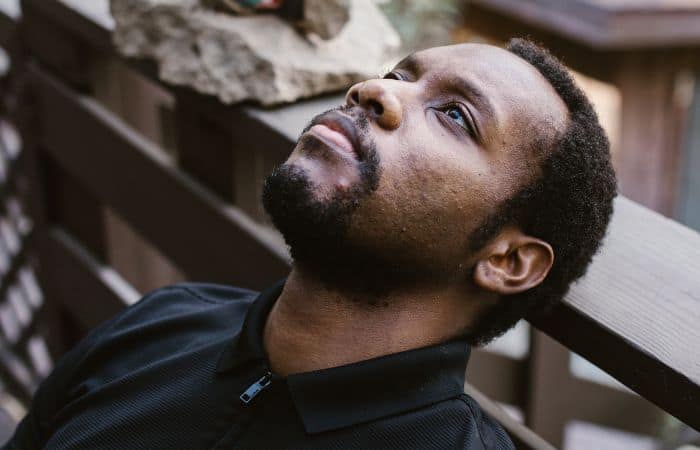While there are many factors that contribute to the end of a relationship, it’s not uncommon for the dumper to blame the dumpee for the breakup. This phenomenon can leave the dumpee feeling confused, hurt, and unfairly targeted. But why does the dumper blame the dumpee?
In this blog post, we’ll explore the reasons why the dumper may blame the dumpee, and offer tips for how to cope with this difficult situation. Whether you’re currently going through a breakup, or have experienced one in the past, understanding the dynamics of blaming can help you navigate the aftermath with greater clarity and self-compassion.
Reasons Why the Dumper Blames the Dumpee
When a relationship ends, it’s natural for both parties to engage in self-reflection and try to make sense of what went wrong. However, it’s not uncommon for the dumper to shift blame onto the dumpee. There are several reasons why this happens, and understanding them can help you move on from a failed relationship.
Guilt and Shame
Guilt and shame are common emotions that often arise after a breakup. In order to alleviate their guilt or avoid taking responsibility for their actions, some dumpers may resort to blaming the dumpee for the end of the relationship. This blaming behavior can manifest in various ways.
One way dumpers might blame their ex-partner is by accusing them of doing something wrong or being at fault for certain problems in the relationship. By placing blame on someone else, they can avoid confronting their own shortcomings and feel better about themselves.

Another way they might shift blame onto the dumpee is by emphasizing how difficult it was for them to make the decision to break up, making it seem like it was a necessary evil rather than a choice made out of convenience or selfishness.
Emotional Control
When a relationship ends, it is common for one person to try and regain a sense of control by blaming the other. This can be a way of shifting responsibility and avoiding personal accountability for the end of the relationship. The dumper may feel overwhelmed or uncertain about their decision to end things, which can lead to them using blame as a coping mechanism.
What Will You Pick?
The choice you make will reveal your personality
In some cases, the dumper may also use blame as a way to manipulate the dumpee into thinking they are solely responsible for the demise of the relationship. By doing so, they can avoid having difficult conversations about their own behaviors or feelings that contributed to the breakup. This type of behavior is not healthy or productive and only serves to prolong healing and closure for both parties.
It is important to recognize that blaming someone else for a breakup will not make it easier or faster to move on. Instead, focusing on personal growth and learning from past experiences can help individuals heal and move forward in a positive direction. Blaming others only creates unnecessary negativity and prolongs healing timeframes.
Incompatibility
Incompatibility is a common reason for breakups, and it can be caused by different perspectives on the relationship. When two people have opposing views and can’t compromise, the relationship becomes untenable. In some cases, one person might feel that the dumpee didn’t understand their needs, leading to frustration and resentment.
When a relationship ends due to incompatibility issues, it is very common for the dumper to blame the dumpee. The dumper may feel that they were forced into ending things because of their partner’s inability to meet their needs or adapt to their perspective. This feeling is often compounded by a sense of disappointment or betrayal that comes from realizing your partner isn’t who you thought they were.

It’s important to remember that blaming the dumpee for being incompatible doesn’t make anyone happy or help anyone move forward. Relationships are complex, and it takes two people working together to build something lasting. While it’s understandable why someone might point fingers after a breakup, ultimately this behavior only serves to prolong negative feelings and prevent closure from being achieved.
Can Blaming the Dumpee Be a Form of Emotional Manipulation or Gaslighting?
Blaming the dumpee shifts the responsibility and accountability from the dumper to the dumpee. This can leave the dumpee feeling guilty and questioning their own worth, causing them to internalize and accept blame for something that may not entirely their fault.
It is important to recognize that blaming the dumpee is not always intentional, but rather a defense mechanism used by some dumpers to avoid feeling guilt or shame themselves. Dumpers may also feel insecure about their decision to end things, so they may try to justify their actions by pointing fingers at their partner.
Regardless of intent, blaming the dumpee can have long-lasting effects on one’s self-esteem and mental health. It is crucial for both parties in a breakup to take responsibility for their actions and communicate effectively without resorting to manipulative tactics.
How Can Both the Dumper and Dumpee Work Towards a Healthier Way of Handling a Breakup without Blame?
In order to move forward in a healthy way after a breakup, both parties need to avoid assigning blame. Instead, they should focus on understanding and accepting each other’s perspectives. This means acknowledging that both people contributed to the end of the relationship and taking responsibility for their own actions.
To work towards a healthier way of handling a breakup without blame, communication is key. Both parties should strive to communicate openly and honestly with each other about how they are feeling and what they need moving forward. They should also practice empathy towards one another, recognizing that breakups are difficult for everyone involved. With time and patience, it is possible for both parties to heal from the breakup without placing unnecessary blame on each other.

How Can the Dumpee Cope with Being Blamed for The Breakup and Move on From the Relationship?
Breaking up is never easy, and it’s even harder when you’re the one being blamed for the end of the relationship. Being dumped can be devastating, but being made to feel like it was your fault can make it so much worse. However, there are ways to cope with being blamed for the breakup and move on from the relationship.
Take Responsibility for Your Part
While it may be tempting to defend yourself and place all the blame on your ex-partner, it’s important to take responsibility for your part in the breakup. Think about the things you could have done differently and learn from your mistakes.
Avoid Contact with Your Ex-Partner
It’s best to give yourself some space and avoid contact with your ex-partner, at least for a while. This will help you process your emotions and move on from the relationship.
Seek Support
Talk to friends or family members who can provide emotional support and help you cope with the breakup. You can also consider seeking the help of a therapist or counselor to work through your feelings.
Focus on Self-Care
Take care of yourself by engaging in activities that bring you joy and make you feel good. This can include exercise, hobbies, or spending time with loved ones.
Let Go of Guilt and Shame
It’s common to feel guilty or ashamed when blamed for a breakup, but it’s important to let go of these feelings. Remember that relationships are complex, and both parties are usually responsible for the outcome.

Reflect and Learn
Use the breakup as an opportunity for personal growth and reflection. Think about what you want in a future relationship and what you can do differently next time.
Move On
Finally, it’s important to accept the breakup and move on. This can be a difficult process, but with time, self-care, and support, you can heal and find happiness again.
Conclusion
It is clear that the dumper’s reasons for blaming the dumpee are often rooted in their own feelings of guilt and insecurity. This blame can be damaging to the dumpee, so it is important to understand why it happens and how to cope with it. It may be helpful for both parties to talk openly about their feelings and explore any issues that may have caused the relationship to end. By acknowledging these emotions, they can work towards closure and move forward in a healthier way.
Hey, hey! As we bid adieu to this captivating blog post, here's a thought to ponder: Why not follow us on Facebook? Trust us, exciting updates and engaging discussions await! Follow now!










